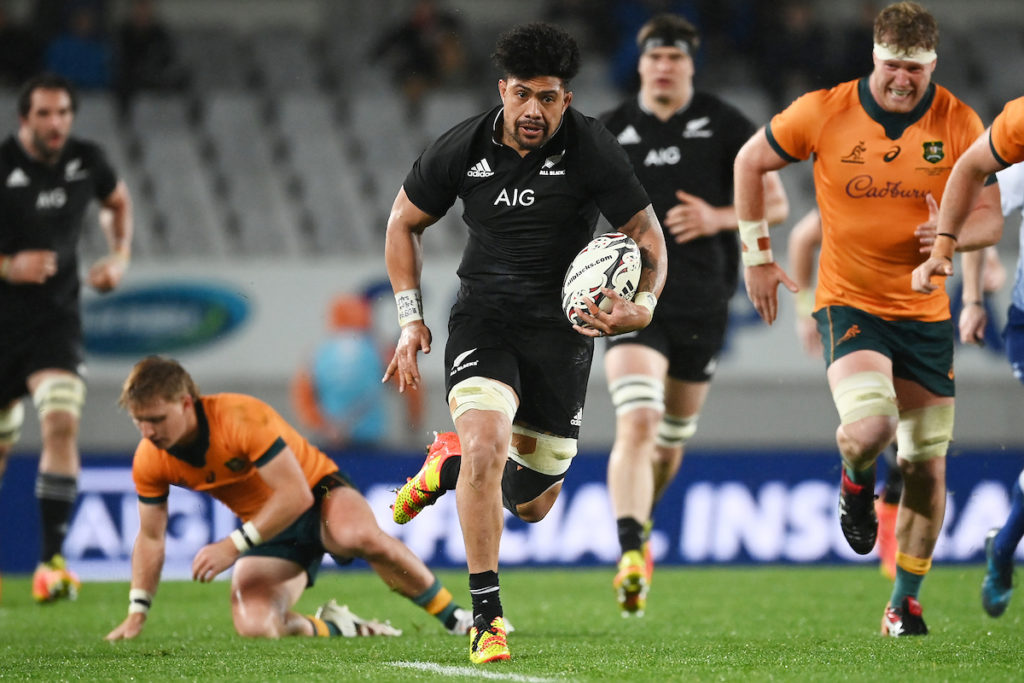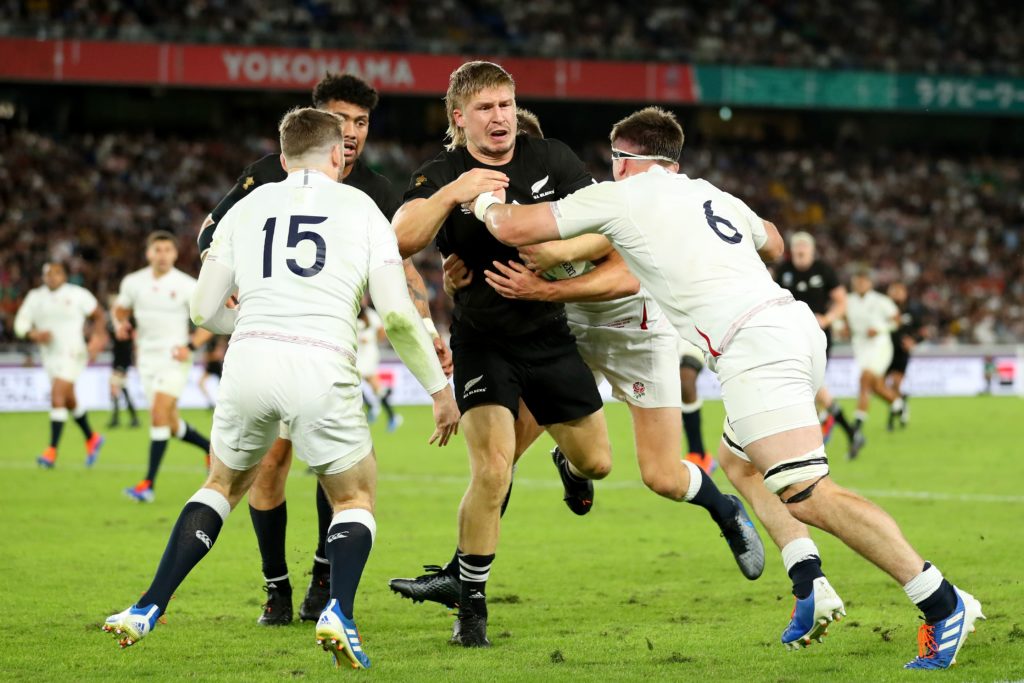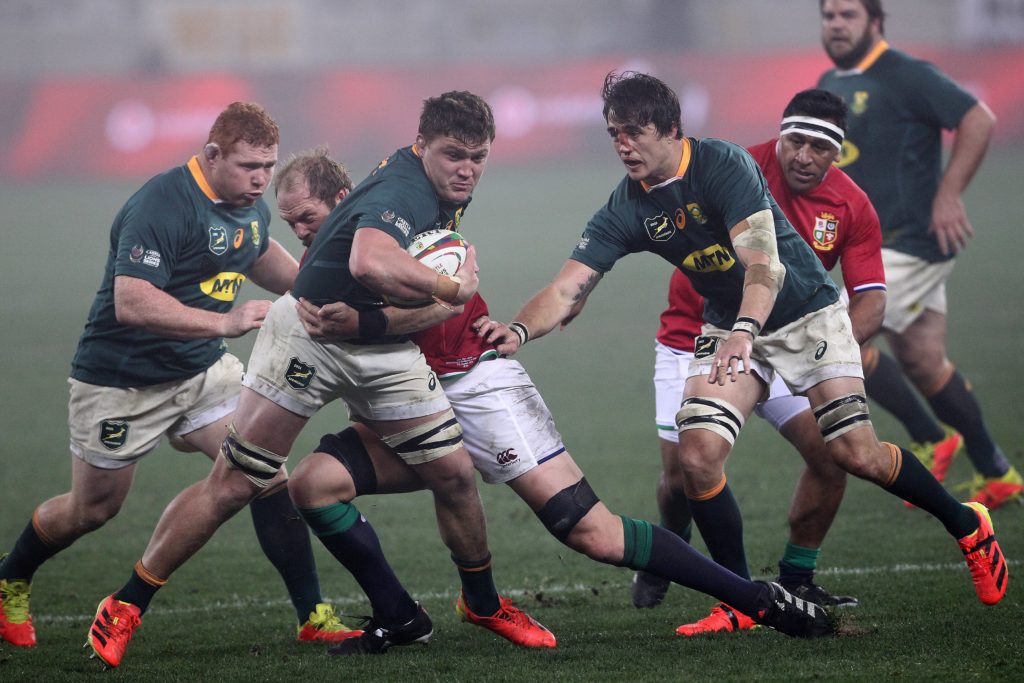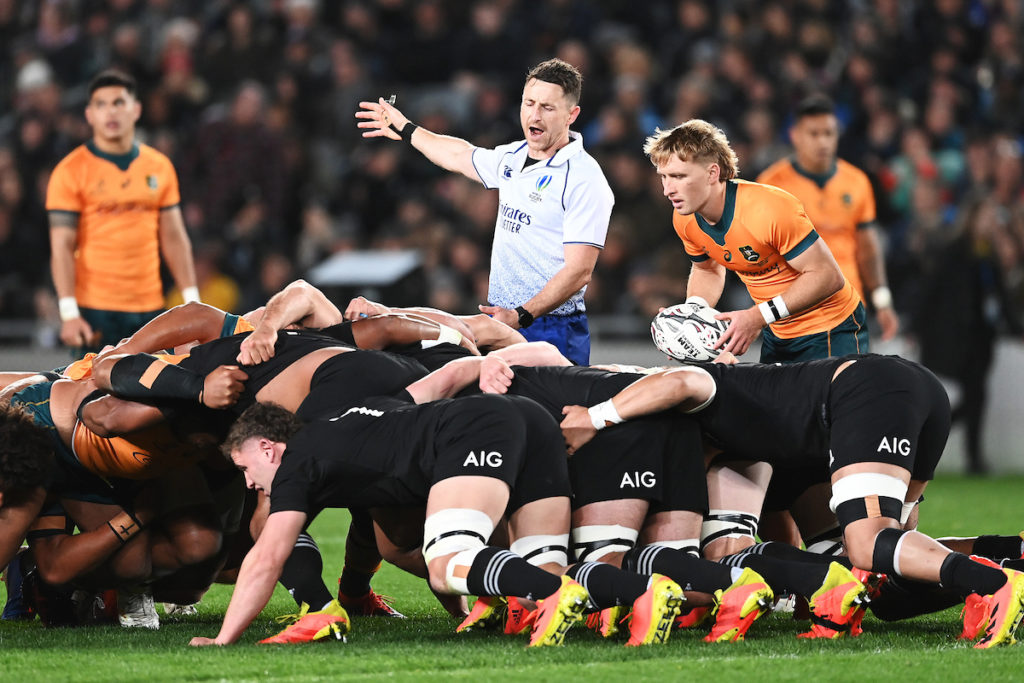When Donald Trump was president of the USA, fact-checking his many and various claims became a full-time sport/science for media outlets.
Rarely, though, do those who work in the media covering rugby feel the need to challenge statements made by coaches or players. There is no Trump figure, pedalling grotesque lies to suit his needs and it’s not often anyone says something that sounds so out of kilter or fanciful as to do anything other than take it at face value.
But after the Wallabies lost 57-22 to the All Blacks at Eden Park – a game that ensured New Zealand retained the Bledisloe Cup for the 18th straight year – Dave Rennie said something that was worth checking.
The Wallabies coach was asked to detail where he felt his side had gone wrong in succumbing to what was a record number of points conceded in New Zealand.
He rattled off all the usual problem areas – failure to look after the ball, to exploit the space behind the rushing defensive line and to play enough good rugby for long enough periods.

His actual words were: “We were well beaten and well beaten because we didn’t treasure the ball well enough. I thought we defended really well in the first half and were really physical. But we made some really poor decisions defensively. If we turn the ball over or if we kick poorly and got exposed down short sides and threw a couple of intercepts when there was some clear space behind to put some pressure on them.
“It’s disappointing. It just highlights that if they are going to play higher you have to turn them around.”
This was all run of the mill stuff that mostly anyone with even a rudimentary knowledge of the game could have worked out for themselves.
But what Rennie then said was worthy of being fact-checked: “What we know is you have got to defend well against the All Blacks and clearly we didn’t do that well enough. If you can reduce them to around about 20 points or less, they lose more than they won. That was certainly a goal heading into [the first two tests] and will be the goal again in the third test.”
Some may feel he was stating the obvious to some degree – merely pointing out that if opposition teams shut the All Blacks down, restrict their time and space and make them execute all their micro-skills under intense pressure, it greatly enhances the chances of defeating them.
The importance of this figure can’t be overstated – because it gives a sense of how teams need to balance their decision-making when they play against the All Blacks.
But Rennie was offering up much more than that. He was producing a magic number of sorts for everyone to target; restrict the All Blacks to 20 points or fewer and the likelihood of defeating them increases dramatically.
The importance of this figure can’t be overstated – because it gives a sense of how teams need to balance their decision-making when they play against the All Blacks.
They have to work out what level of risk they are prepared to take with their attack game, because there is in fact a dual requirement – that teams not only need to defend well enough to restrict the All Blacks to 20 points, they have to attack with enough adventure and positivity to score 21 points of their own.
So how does this stand up to scrutiny? Was Rennie just riffing or providing a genuine piece of statistical analysis?
It turns out his claim does indeed have a deep basis in recent history. If we look at the two games the All Blacks lost in 2020, they were beaten 24-22 by the Wallabies and 25-15 by the Pumas. In 2019, they scored just seven points when they lost to England in the World Cup semi-final and 16 when they drew with the Boks.

In 2018 they lost 16-9 to Ireland. In 2017 they lost 24-21 to the Lions and drew 15-all and lost 23-18 to the Wallabies. In 2015 they lost one game – 27-19 to the Wallabies while in 2014 they drew 12-all with Australia as well.
And in 2012 they drew 18-all with the Wallabies and lost 38-21 to England. There are exceptions, of course.
In 2019 the All Blacks scored 26 points but still lost to Australia in Perth. In 2018 they scored 34 points and lost to the Boks. In 2016 Ireland beat them 40-29 and the Boks won 27-25 in 2014.
The All Blacks have lost 12 times and drawn four times since 2012 and on nine of those occasions they scored fewer than 20 points. There were two defeats where they scored 21 points, one where they scored 22, one where they scored 23, one where they scored 25 and one where they scored 26.
Rennie’s point is accurate – the key to beating the All Blacks is defending supremely well and this isn’t the exercise in stating the obvious some may think it is.
No country in the world plays with the same finely honed instincts as New Zealand whose players have an innate sense of how to create and exploit space without it needing to be coached.
What it is really saying is that it is statistically ill-advised to try to beat the All Blacks at their own game. That is, rarely do they lose if their opponent comes at them with a fast, wide, attack-driven game.
That’s the preferred style of the All Blacks and they are the masters at it. If their opposition take them on in a similar vein, it tends to open the game up, turn it into a free-flowing, unstructured contest where speed of thought and quality of execution become everything.
No country in the world plays with the same finely honed instincts as New Zealand whose players have an innate sense of how to create and exploit space without it needing to be coached.
Australia in 2019, Ireland in 2016 and South Africa in 2018 are the only three teams in the last decade to comprehensively outplay the All Blacks at their own style: concede significantly more than 20 points and still win.
So, given the statistics, its understandable why South Africa, a team that naturally defers to conservative, low-risk rugby, have been pitched as New Zealand’s nemesis.

The perception has grown in New Zealand that the All Blacks are vulnerable to the stifling nature of the game the Boks play and that contests between them are always a strong clash of styles.
South Africa are the game’s number one team and current world champions, which has deepened this perception that they are the one team on the planet that has consistently managed to reduce the All Blacks to 20 points or less and regularly beat them.
This is where more fact-checking is required though, because the true picture bears little to no resemblance to the perception. This whole idea that the Boks are the one team the All Blacks can’t play against is a fallacy.
Since 2012, the All Blacks have played the Boks 16 times and won 13 of those, with a draw in 2019 and two defeats. In the last decade, the All Blacks have amassed a win ratio of 81 per cent against the Springboks.
In the same period, their win ratio against the Wallabies is 78 per cent. More telling, however, is the way the numbers puncture this idea of the Boks being impregnable.
If anything, the statistics show that the All Blacks are much better at beating the Springboks at their conservative game than South Africa are at beating New Zealand at their expansive game.
Since 2016, the All Blacks have scored an average of 35.5 points and 39 tries in their eight tests against the Boks for an average of 4.9 per game.
They have averaged 36 points and 4.8 tries against Australia in the same period. What is of yet more interest, however, is that the Boks have managed to restrict the All Blacks to close to that magic 20-point mark four times in the last 10 years and still lost.
New Zealand won 21-11 in Dunedin 2012; they won 14-9 in Wellington 2013; 20-18 at the semi-final of the 2015 World Cup and 23-13 in the pool round at the 2019 World Cup.
If anything, the statistics show that the All Blacks are much better at beating the Springboks at their conservative game than South Africa are at beating New Zealand at their expansive game.
Fact-checking is definitely worth the effort when it comes to rugby because perception often doesn’t have the basis in reality many believe it does.

The All Blacks do play the Wallabies more than they play the Springboks creating a statistical likelihood – based on probability – that Australia will post more wins against New Zealand than South Africa will.
But still, even allowing for that, the truth is that the Wallabies have had more success against the All Blacks in the last decade than the Springboks. The Wallabies have done just as well, or poorly, at containing the All Blacks as the Springboks have.
And even more pertinently, while there is a hard truth to 20 being the magic number – restrict the All Blacks to about that number of points and the probability of beating them rises exponentially – that doesn’t apply to South Africa.
Even when they do manage to shut them down and keep them contained, it doesn’t tip the balance of probability in their favour.
They still appear to lose almost as much against the All Blacks when they contain their attack or don’t contain it.


Comments
Join free and tell us what you really think!
Sign up for free